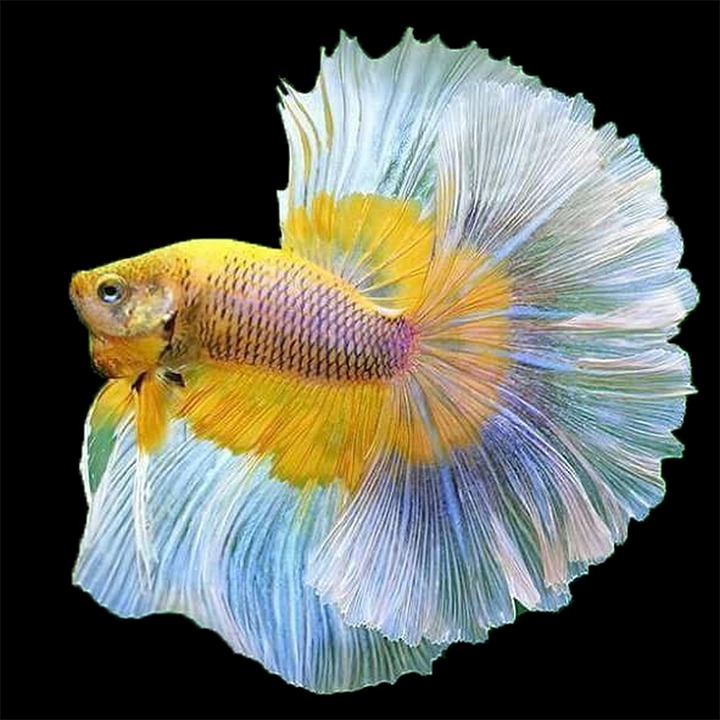**Title: Supporting Parental Care Behavior in Breeding Fish: Enhancing the Well-being of Your Aquatic Family**
**Introduction**
Breeding fish can be a rewarding and fulfilling experience for any aquarist. However, to ensure the survival and success of the offspring, it is crucial to support and encourage parental care behaviors. Parental care plays a vital role in the development and well-being of the fry, as it involves activities such as nest building, egg guarding, and fry protection. In this article, we will explore various ways to support and enhance parental care behavior in breeding fish.
**1. Creating an Ideal Breeding Environment**
To promote parental care behavior, it is essential to provide an ideal breeding environment for your fish. This includes:
– Providing Adequate Space and Structure for Spawning: Different fish species have varying requirements for spawning. Research the specific needs of your fish and provide appropriate space, such as caves, plants, or spawning mops, to encourage successful spawning.
– Maintaining Water Quality and Optimal Conditions: Clean and well-maintained water is crucial for the health and well-being of your breeding fish. Regular water changes, proper filtration, and monitoring water parameters such as temperature, pH, and ammonia levels are essential.
– Ensuring Sufficient Hiding Places for Fry Protection: Once the eggs hatch, fry need hiding places to avoid being eaten by adult fish or other tank mates. Provide plants, rocks, or other suitable structures to create hiding spots and protect the fry.
**2. Identifying and Selecting Parental Fish**
Not all fish species exhibit parental care behaviors. To support parental care, it is important to choose fish species that display such behaviors. Additionally, consider the following factors when selecting parental fish:
– Recognizing Species with Parental Care Behaviors: Research different fish species and identify those known for their parental care behaviors. Some popular examples include cichlids, bettas, gouramis, and killifish.
– Choosing Healthy and Compatible Parental Fish: Opt for healthy fish that are free from diseases or deformities. Additionally, ensure that the selected fish are compatible in terms of size, temperament, and habitat requirements.
– Considering Genetic Diversity for Strong Offspring: Crossbreeding fish of the same species but from different bloodlines can help maintain genetic diversity, which can result in stronger and healthier offspring.
**3. Stimulating and Inducing Breeding Behavior**
To encourage breeding behavior in your fish, it may be necessary to simulate certain environmental conditions or triggers. Here are some methods to stimulate breeding behavior:
– Manipulating Water Temperature and Lighting Cycles: Adjusting the water temperature and the duration of light exposure can mimic seasonal changes and trigger breeding behavior in some fish species.
– Adjusting Feeding Regimen to Trigger Breeding Response: Altering the feeding routine, such as providing a varied diet or increasing the frequency of feedings, can help stimulate breeding behavior in certain fish species.
– Utilizing Simulated Rainfall or Water Currents: Some fish species, like annual killifish, require a sudden change in water conditions, such as a simulated rainfall or water current, to initiate breeding behavior. Research specific methods for the fish species you are breeding.
**4. Supporting Parental Care During Incubation**
During the incubation period, parental fish play a crucial role in protecting and caring for the eggs. Here are some ways to support parental care during this stage:
– Providing Suitable Nesting Sites or Substrates: Different fish species have different preferences for nesting sites. Research the specific requirements of your fish and provide suitable substrates, such as plant leaves, spawning mops, or rocks, for them to attach their eggs.
– Securing and Protecting Eggs from Predators: Parental fish may guard their eggs against potential threats. Provide hiding places or barriers to protect the eggs from other tank mates or predators.
– Maintaining Optimal Water Quality for Embryo Development: Consistently monitor and maintain water quality parameters to ensure the optimal development of the embryos. Any fluctuations in water quality can negatively impact the eggs or fry.
**5. Encouraging Parental Care in Fry Rearing**
Once the fry hatch, it is important to continue supporting parental care behavior for their well-being. Consider the following practices:
– Offering Nutritious and Appropriate Fry Food: Provide a suitable diet for the fry, such as specialized fry food or finely crushed flakes. Ensure that the food is small enough for the fry to consume easily.
– Assisting Fry Movement and Safety within the Tank: Some fish species may require assistance in finding food or navigating the tank. Use gentle water currents or provide live plants for the fry to cling to, promoting their movement and safety.
– Monitoring and Managing Aggression Among Parental Fish: In some cases, parental fish may become aggressive towards their offspring. If this occurs, closely monitor the situation and consider separating the fry from the parents to prevent any harm.
**FAQs: Frequently Asked Questions**
1. What are the benefits of parental care in breeding fish?
2. How long does parental care behavior typically last in fish?
3. Can all fish species exhibit parental care behaviors?
4. Are there any risks or challenges associated with supporting parental care in breeding fish?
5. How can I tell if my fish are displaying parental care behaviors?
6. Is it necessary to separate fry from parental fish after hatching?
7. What should I do if the parental fish show signs of aggression towards their offspring?
8. How can I ensure the survival of fry in a community tank with other fish?
**Conclusion**
Supporting parental care behavior in breeding fish is crucial for the well-being and survival of the offspring. By creating an ideal breeding environment, selecting appropriate parental fish, stimulating breeding behavior, and providing support during incubation and fry rearing, you can enhance the overall well-being of your aquatic family. Remember, patience, research, and adaptability are key in successfully supporting and nurturing parental care behaviors in breeding fish.









